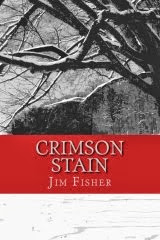Early in "Limitless" (2011), moviegoers see Bradley Cooper leaning over a keyboard, hands pressed prayerfully to face, waiting in agony for the words. Salvation arrives in the form of a pill that allows Cooper's character, the writer Eddie Morra, to use 100 percent of his brain instead of just 20. The words start coming, clear and fast; indeed, Eddie becomes so lucid that he gives up authorship for day-trading.
Because no one wants to watch somebody typing, Hollywood often makes movies about writers who stop writing. It's easier, and more entertaining, to show them being…destroyed by fame or drink or premature success.
On film, authorship is mostly a matter of occupational hazard. Woody Allen's "Deconstructing Harry" (1997) offers a look at a novelist who writes from his own life, infuriating lovers and family members, "Wonder Boys"(2000), made from Michael Chabon's novel, combines New York trade publishing with the provincial world of a M.F.A. [Masters of Fine Arts] workshops…
The hard part is always trying to show writers doing what they actually do. The Michael Douglas character occasionally sits at his Selectric wearing a woman's bathrobe, like a pitcher's lucky underwear, trying to summon more phrases for his already overlong, inert manuscript.
Martin Amis once observed that "a writer is, on the whole, most alive when alone." That's when he gets "on with the business of imagining other people." And that's why movies do a much better job of admiring authorship rather than conveying it.
Thomas Mallon, "Why Is It So Hard to Capture the Writer on Film?" The New York Times Book Review, May 4, 2014
Because no one wants to watch somebody typing, Hollywood often makes movies about writers who stop writing. It's easier, and more entertaining, to show them being…destroyed by fame or drink or premature success.
On film, authorship is mostly a matter of occupational hazard. Woody Allen's "Deconstructing Harry" (1997) offers a look at a novelist who writes from his own life, infuriating lovers and family members, "Wonder Boys"(2000), made from Michael Chabon's novel, combines New York trade publishing with the provincial world of a M.F.A. [Masters of Fine Arts] workshops…
The hard part is always trying to show writers doing what they actually do. The Michael Douglas character occasionally sits at his Selectric wearing a woman's bathrobe, like a pitcher's lucky underwear, trying to summon more phrases for his already overlong, inert manuscript.
Martin Amis once observed that "a writer is, on the whole, most alive when alone." That's when he gets "on with the business of imagining other people." And that's why movies do a much better job of admiring authorship rather than conveying it.
Thomas Mallon, "Why Is It So Hard to Capture the Writer on Film?" The New York Times Book Review, May 4, 2014






No comments:
Post a Comment